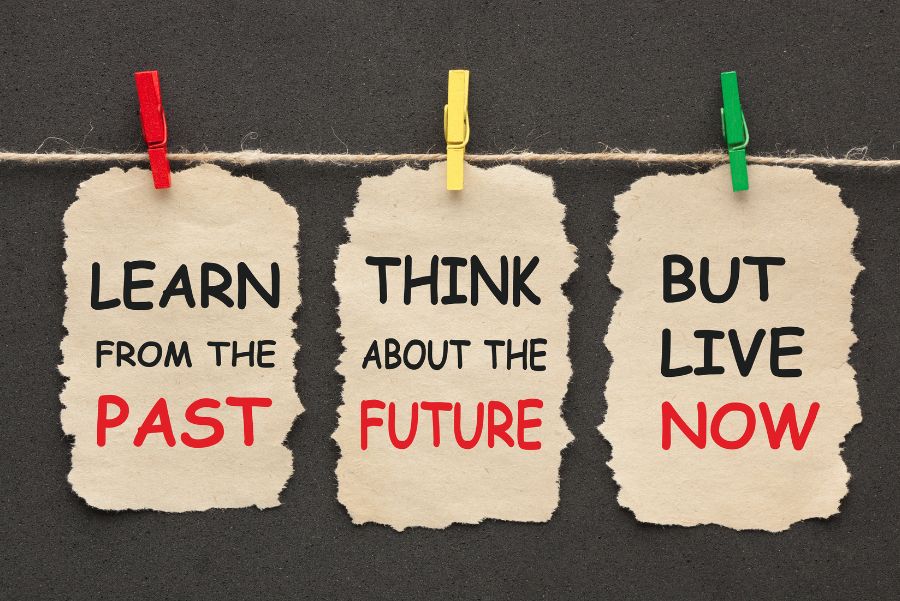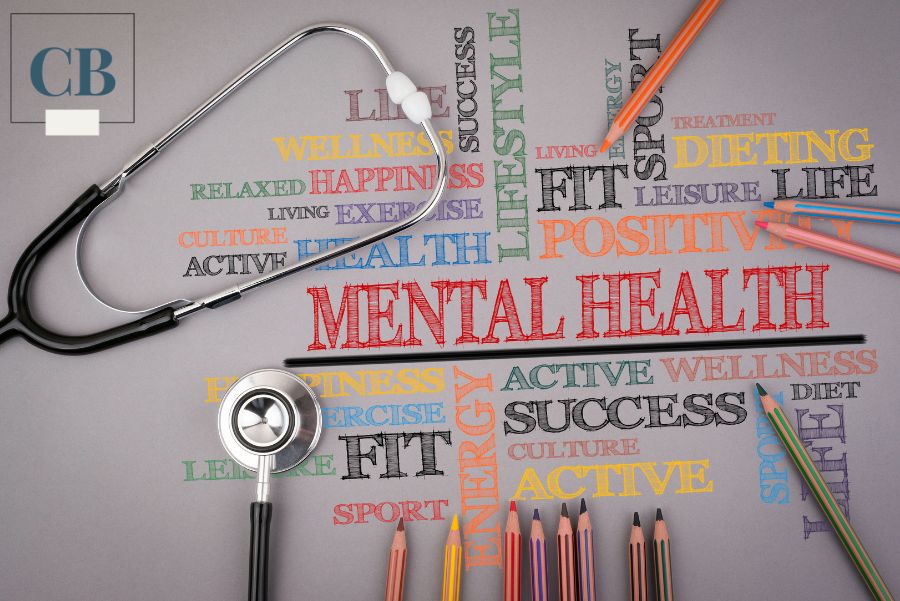Mental health is an important topic that is, thankfully, gaining more attention in our modern world. About one in five Americans will have some mental illness this year. As a result of this growing discourse, many are beginning to think about engaging with mental health services. If you are considering working through your mental health with a therapist, you are on a path toward improving your life and genuinely helping yourself. You are not alone, and taking a step toward therapy is essential in getting the help you deserve. But it is hard to know what to expect from therapy. You might be basing your expectation of therapy sessions on how they play out in your favorite media. You may also build up an unrealistic expectation of how therapy might work. That can be scary and, as an unfortunate effect, cause you to be anxious about your mental health journey. In a lot of people, these expectations can lead people never to seek therapy at all. But the reality is often quite different- in what is often a very positive way. You may also be stressing out about how your therapist will react to your issues or how they will treat you. It can be a lot of stress to put yourself through building up an inaccurate picture of how your therapy will function and how your therapist will act toward your issues. This blog is here to help you understand the reality of how a therapy session works and to put you at ease regarding how your sessions will unfold. With this knowledge of reality, you can confidently make decisions regarding your mental health and decide how to best progress.
This article will focus mainly on talk therapy, but other types of therapies exist. Some common ones include EDMR and art therapy.
Therapy in Media
Media therapy often works by simply employing a character sitting and explaining their issues to the therapist. In comedies, the punchline of this interaction is often something like “and how does that make you feel?”. Further, many therapists do things and have behaviors that we do not see in real life. Some of them are highly aggressive toward their clients in an attempt to get a rise out of them- mainly for the purpose of “helping them .” Some of them in TV and films even lay hands on their clients, which is a major ethical violation. You can rest assured that these ethical violations will not occur with a quality therapist. They will not simply sit there and write, occasionally asking vague questions.
Many media depict therapy as something similar to simply talking to a friend. Some therapists in the media develop relationships that go beyond that of simple professionalism. Some therapists in films, TV, and books commit ethical violations by entering into romantic relationships with their patients.
We often see therapy in the media as highly generalized. In other words, all therapists are shown as being equally skilled and qualified at treating all mental illnesses.
Not all fictional depictions are wrong or without proper research, mind you. Some depictions of therapy in the media have positively impacted getting people to start the therapeutic process. Therapists are typically portrayed as intelligent, personable, and helpful. This portrayal has helped increase public awareness about mental health and helped people begin that journey.
Typical anxieties about therapy
A lot of what we worry about when thinking of therapy that isn’t associated with media representation can be associated with our internal monologue regarding the experience. It can be easy to build up a scary image of how this process works, particularly if it is your first time going through the therapeutic process. Many people feel their therapist may be shocked or disgusted with what they have to share or even judge them for their issues. Some think they might force them to make unpleasant commitments or changes in their life. Still, others worry about things like revisiting past trauma that they are not ready to delve into.
Therapy in reality

The most important thing for you to understand about your therapeutic relationship is that it is a relationship. A good therapist is a good partner for your mental health journey. You will be building trust and rapport through your various sessions. Your therapist is not there to control the situation completely and force you to do things. Similarly, they are not there to sit back and listen without dialogue. Different types of therapy will vary in how this relationship plays out. You may have a therapist who specializes in different styles and tackles your unique problems differently.
You can think of talk therapy as a guided dialogue. Dialogue is the operative word here. It is not a monologue where you get things out and move on- even though expressing complicated feelings is a valuable and essential part of this process. It is also not a process wherein a therapist gives you coping strategies with no input from you as to the effectiveness of treatment.
All therapy is a structured and guided experience through which you are the patient. The destination of this guided experience is your healing. You will have to put in a lot of work, but the defining feature of therapy has the professional working with you. It is a unified experience for your benefit. Therapy sometimes feels like talking to a loved one, but it is very different. Your therapist has no motive other than to help you. While it is good to develop a close relationship where you feel comfortable sharing your issues with your therapist, expecting friendship or some deeper relationship outside of the professional one will set you up for a severe misunderstanding of the therapeutic process.
This guided process is best when you are cooperating to your fullest. This involves letting your therapist know what is working and what isn’t. It is also essential to establish boundaries and let the therapist know what things you are unwilling to do as part of treatment. You can see that these things are part of an ongoing, guided dialogue, which is often not correctly represented in the media.
Many anxieties about therapy relate to a therapist’s potential reactions to specific issues. The biggest misconception is that your therapist is going to judge you. Most people who have had bad experiences with their therapists come away with the impression that therapists are judging them or not sympathetic. This is especially true for those who someone in a position of power has abused. In reality, your therapist is not there to judge you; they are there to help you heal. They are highly educated and trained professionals who understand trauma and abuse.
Some clients are prone to believing that they are being judged or criticized. If you find yourself feeling this way, you might want to consider taking a break from therapy. This can signify that your relationship with your therapist needs some work. Next, understand that you can always change therapists if they have adverse reactions that make your healing process more difficult.
How does good therapy really work?
As we’ve covered, therapy is a guided, focused conversation about your issues and how to solve them. To start with, it may be a good idea to get therapy with a professional specializing in your presenting concerns. While your issues and concerns may evolve and change over time, getting help for your specific issues is essential. For example, some therapists have specialties in eating disorders. If you are seeking mental health care regarding that issue, it may be good to seek it with someone who specializes in it. Getting help from a trauma specialist can be good if you have past trauma.

There are a lot of ways that you need to help to ensure that your therapy works correctly. Acknowledging the misconceptions we’ve already addressed as misconceptions is an important part. Working through the guided process with the structure it is designed with is vital to ensuring therapy works properly.
Additionally, your relationship with this therapist is at the core of the therapeutic experience. If you feel uncomfortable with your therapist, it will not work effectively. One of the misconceptions we see about therapy is that the therapist will force you to be “better .”This is untrue. While your therapist may ask you to do certain uncomfortable or difficult things, a good therapist will never force you to do things you do not want to do or talk about topics that you are not ready, willing, or able to discuss. If you do find yourself in a situation where you don’t like what your therapist is doing or how they are working with you, it is a misconception that you are “stuck” with this particular person. This is untrue. You can switch therapists or end therapy if the treatments are not working for you.
Another misconception is that your therapist will also be “stuck” with you. Remember how many times we have mentioned that this is a dialogue? In reality, a good therapist must evaluate whether they can treat you and address your presenting issues.
In the media, we also often don’t see a lot of online therapy services depicted. Online therapy can benefit people, and online therapy platforms are a great way to start therapy and get the help you need.
Getting Therapy
Hopefully, some of your unrealistic expectations or anxieties regarding therapy have been dispelled in the reading of this blog. If you suffer from mental health issues, you do not have to suffer alone. It is hard to put a price on mental health, but we are committed to ensuring everyone gets the help they need.
Here at Clearly Better Counseling, we are dedicated to using science-based methods and a staff of trained professionals to get you the help you need. So, if you are interested in taking your first steps into counseling, give us a call today! We are experts at implementing talk therapy alongside other methods of mental health care, including habit coaching. And we can help you see the complete picture as well as how to redesign your way to a better life.




